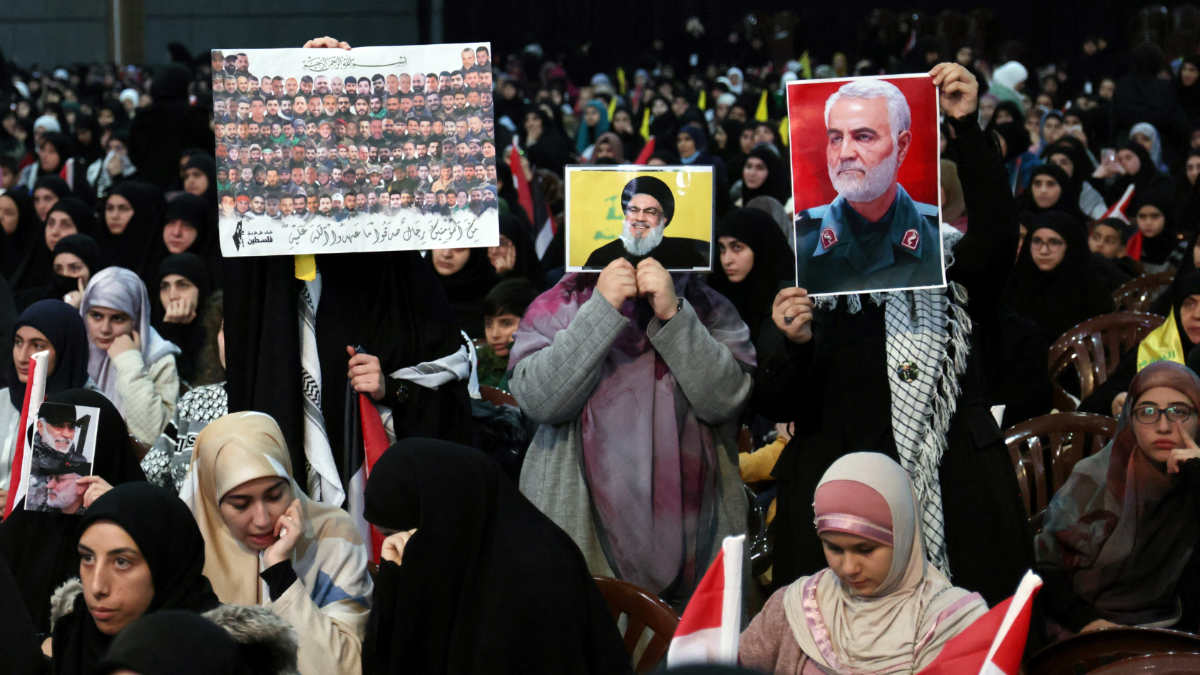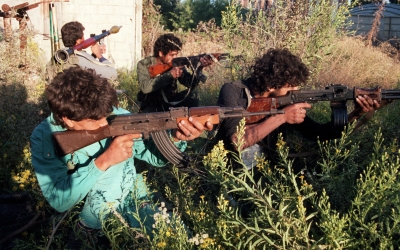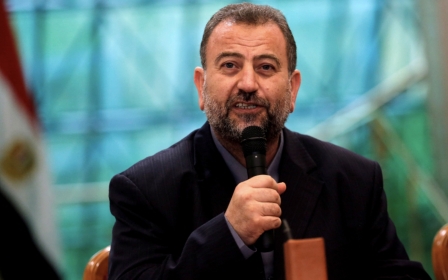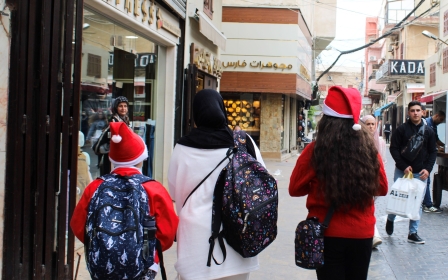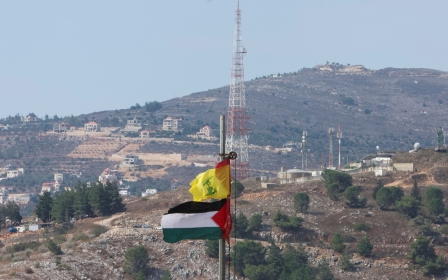Israel-Palestine war: Hamas leader's killing in Beirut complicates US efforts to prevent Gaza war spillover
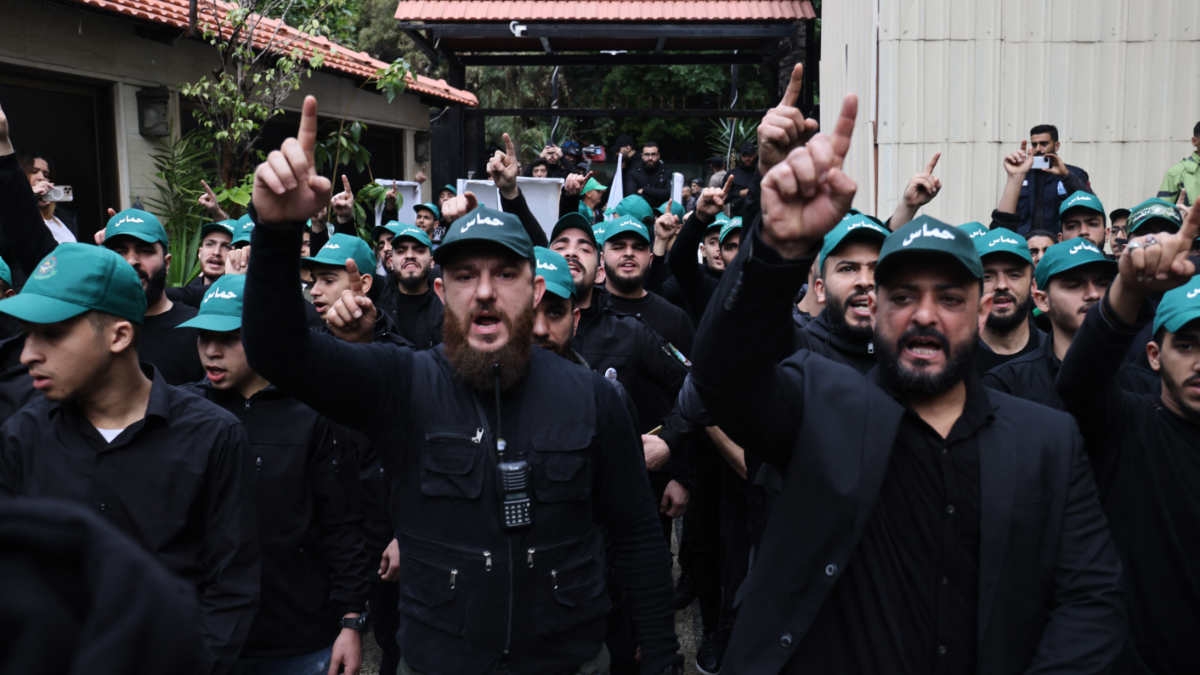
For nearly three months, US officials have worked privately and publicly to prevent an expansion of the Gaza war into Lebanon.
Tuesday’s assassination of senior Hamas official Saleh al-Arouri in a southern suburb of Beirut, controlled by Hezbollah, heaps pressure on the Biden administration’s efforts to prevent the war from spilling over into Israel's Mediterranean neighbour.
“There are clear rules of engagement between Hezbollah and Israel,” Mohanad Hage Ali, a fellow at the Carnegie Center in Beirut, told Middle East Eye.
“[Israel] targeting Dahiyeh warrants the targeting of Haifa or Tel Aviv by Hezbollah,” Hage Ali said, referring to the densely populated Beirut suburb that is also home to Hezbollah’s headquarters.
Hezbollah and Israel have exchanged near-daily fire along their border. The fighting has killed more than 147 Hezbollah members and at least seven Israeli soldiers, according to the Armed Conflict Location and Event Data Project.
New MEE newsletter: Jerusalem Dispatch
Sign up to get the latest insights and analysis on Israel-Palestine, alongside Turkey Unpacked and other MEE newsletters
But the Israeli strike in the capital of Beirut ratchets up tensions to a new level, said Abbas Dahouk, a former senior US military advisor of Lebanese descent.
“An Israeli warplane striking a house in Beirut, in Dahiyeh of all places, is a different flavour from air strikes along the borders of Israel,” Dahouk said. “This is a big gamble on behalf of the Israelis.”
In a speech on Wednesday, Hezbollah leader Hassan Nasrallah made a point of saying that the assassination was “the first time something like this has happened since 2006”, referring to the last time Hezbollah and Israel fought a gruelling 34-day war.
He said the assassination would “not go unpunished”.
US backchannel diplomacy
Underscoring US efforts to contain the fallout from the strike, Amos Hochstein, a key Biden advisor who has served as an emissary between Beirut and Jerusalem, was dispatched to Israel on Thursday. US Secretary of State Antony Blinken is also travelling to the region.
Arouri’s assassination in Beirut comes just as the US had hoped it was making diplomatic headway in pushing Hezbollah and Israel to de-escalate tensions.
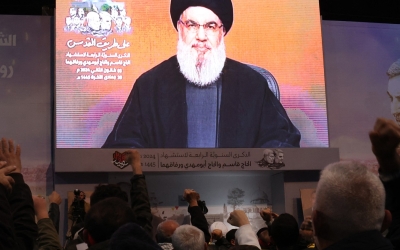
Hochstein and other US officials have been in contact with Hezbollah interlocutors, including caretaker Lebanese Prime Minister Najib Mikati and deputy speaker of Lebanon’s parliament, Elias Bou Saab. The latter was a key go-between for the US and Hezbollah negotiating a maritime deal in 2022.
The diplomatic efforts gained urgency after Israel threatened to change the status quo along the border with military force, saying it would no longer accept fighting that has displaced 80,000 Israelis.
The US wants Hezbollah and Israel to implement a UN resolution known as 1701.
The UN plan which ended the 2006 war, calls on Hezbollah to withdraw its forces from southern Lebanon, and Israel to pull back from the "blue line" which is the unofficial border between the neighbours.
Firas Maksad, an expert on Lebanon at the Middle East Institute, told MEE “those discussions were taking place with the assumption that the Israeli-Lebanon border conflict would be contained” and that the strike made an agreement an even more distant possibility.
'No love lost'
The US appeared to endorse the strike in public.
On Wednesday, State Department spokesperson Matthew Miller said the Biden administration assessed the risk of regional escalation was “not any higher today” than before the assassination.
Miller labelled Arouri “a brutal terrorist who was centrally responsible for the attacks of Oct.7, as well as other attacks against innocent civilians”. He also said the US was not given advance notice of the attack.
'It's better it happens in Lebanon than Qatar or Turkey'
- Adam Clements, former senior US Pentagon official
But Adam Clements, a former senior US Pentagon official, told MEE that the US would have expected such a strike, given Israel's public pledge to target Hamas leaders abroad.
“I think in Washington it was seen as inevitable that this would happen. And from the US perspective, it's better it happens in Lebanon than Qatar or Turkey,” where Hamas leaders are also based.
Arouri himself was a target whose death leaves “no love lost” with Washington, Clements added.
Of all the senior Hamas officials, Arouri was seen as one perhaps closest to Iran. He deepened ties between the Palestinian group and Tehran’s “axis of resistance”, a collection of armed groups aligned with Tehran, including Hezbollah.
He also had deep roots in Hamas’s military wing, rising through Hamas’s ranks and establishing the al-Qassam brigades in the occupied West Bank.
Since Arouri’s strike, the US has gone on the offensive against Iran.
On Thursday, Reuters reported that the US military carried out a strike in Baghdad against a senior Iraqi militia leader with ties to Iran.
But the Arouri assassination comes amid signs of strain in US-Israeli ties.
Washington has urged its ally to shift to a more targeted campaign in Gaza. This week it rebuked Netanyahu’s political allies who called for a forced displacement of Palestinians from Gaza - a move opposed by Washington and its Arab allies.
Maksad, at MEI, said he would find it “hard to believe that the US was not given advance notice of the strike”, but if that was the case “it would signal that the differences [between the US and Israel] have only grown, certainly when it comes to opening a second front in Lebanon”.
Hezbollah's deterrence tested
Experts say that if the Arouri strike is a challenge to the US’s ability to contain the fighting in Gaza, it’s an even greater challenge for Hezbollah’s "deterrence".
“If Israel can strike in Beirut at will that means they can change the rules of engagement on Hezbollah,” Hage Ali, at the Carnegie Center in Beirut, told MEE.
US officials say they do not believe Hezbollah wants to enter a full-scale war with Israel.
While Nasrallah’s chest-thumping speech on Wednesday made threats of a war “without boundaries”, analysts familiar with the leader say he actually struck a cautious tone.
He defended Hezbollah’s limited fighting with Israel and said the group was taking into account Lebanon’s national interests.
The Mediterranean country’s economy has collapsed. A full-scale war could bring fighting directly to Hezbollah Shia strongholds in Beirut. Muslim-Christian sectarian tensions could also boil over in a repeat of the more than decade-long Lebanese Civil War.
Previous assassinations of more senior Iranian figures have been met with relatively muted responses by Tehran.
Iran retaliated to the US killing of Commander Qassam Soleimani in 2020 by firing missiles at two bases housing US troops in Iraq. The attack didn’t result in any casualties and the US received advance warning from Baghdad which bases Iran would hit.
“Hezbollah sees Israel losing in Gaza,” Hage Ali said. “I don’t think they are going to be baited into a response.”
The US backchannel to Hezbollah is through Lebanese officials, but states like Qatar and Egypt could also be of value to Hezbollah as it looks to “calibrate” its response to Arouri’s killing, Hage Ali said.
“I wouldn’t leave out a Hezbollah retaliation coordinated through US backchannels with advance warning of where it will happen to limit Israeli casualties.”
Middle East Eye delivers independent and unrivalled coverage and analysis of the Middle East, North Africa and beyond. To learn more about republishing this content and the associated fees, please fill out this form. More about MEE can be found here.


